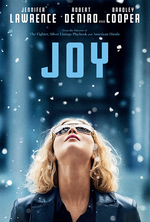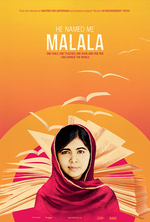Film Screening 19th February, 2016

Joy
7:30 PM, 19th February, 2016
No Guests
- M
- 124 mins
- 2015
- David O. Russell
- David O. Russell
- Jennifer Lawrence, Robert De Niro, Bradley Cooper, Isabella Rossellini
This screening of Joy is proudly presented by Canberra Women in Business
In his third collaboration with ever-rising superstar Jennifer Lawrence after Silver Linings Playbook and American Hustle, director David O. Russell turns his attention to the story of Joy Mangano, inventor of the miracle mop.
While not the most obvious choice for adaptation, the concept serves as a great star vehicle for Lawrence, spanning four whole decades of Mangano’s life: from childhood dreams of invention, to hard-done-by divorcee, to entrepreneur, to matriarch. It's an empowering story about persistence, legacy and the American dream.
Surrounding Joy is a motley crew of family and struggles. From her ex-husband (Édgar Ramírez) who still lives in the basement, to her estranged parents – Robert De Niro and Virginia Madsen – with their various eccentricities. Russell is clearly an actor’s director, and the cast are an all-round pleasure to watch as they excel in their craft under his direction.
In the early 1990s, Joy invents a more effective mop, and begins to produce the design for sale on the mass market. Enter Bradley Cooper – another close collaborator of Russell’s – as an executive at QVC who brings her on board for the early days of the Home Shopping network. As her business begins to show the fruits of success, family drama rears its ugly head and threatens to undo everything Joy has worked so hard for.
The film is darkly humorous, and effectively made – a must-see for fans of this actress, this director and their consistent collaboration.
Josh Paul

He Named Me Malala
9:44 PM, 19th February, 2016
- PG
- 88 mins
- 2015
- Davis Guggenheim
- Malala Yousafzai, Ziauddin Yousafzai, Toor Pekai Yousafzai, Khushal Yousafzai
Oscar-winning documentary maker Davis Guggenheim (An Inconvenient Truth) has made a revealing film about Malala Yousafzai, the youngest ever winner of the Nobel Peace Prize. Malala was shot in the head for speaking out against the Taliban in her Northern Pakistan hometown. She was transported to Birmingham for emergency medical treatment, where she awoke from a coma and decided to launch her global peace and women’s rights campaign. The documentary also focuses on Malala’s relationship with her father, Ziauddin, himself an inspiring, influential and brave activist. He named her Malala after an important folk heroine (whose story is told here through an animated narrative, complete with its own Disney soundtrack!).
Malala’s story is an admirable and inspirational one about resilience and self-sacrifice. And the film goes to lengths to show us that she is just an ordinary teenage girl, with all of the usual family squabbles and romantic dreams to go along with her acclaim. It’s a small pity that not only does Guggenheim leave many questions unanswered with this film, but he also leaves them unasked. A little deeper probing into her motivations would have helped this film feel less like a commercialised, heavily edited advertisement for Brand Malala.
Nevertheless, this is a good introduction to Malala for those who know little about her story, and the inherent power of that story will mean that watching it with a Film Group audience will only enhance the message – and probably prompt spontaneous applause at the conclusion.
Travis Cragg